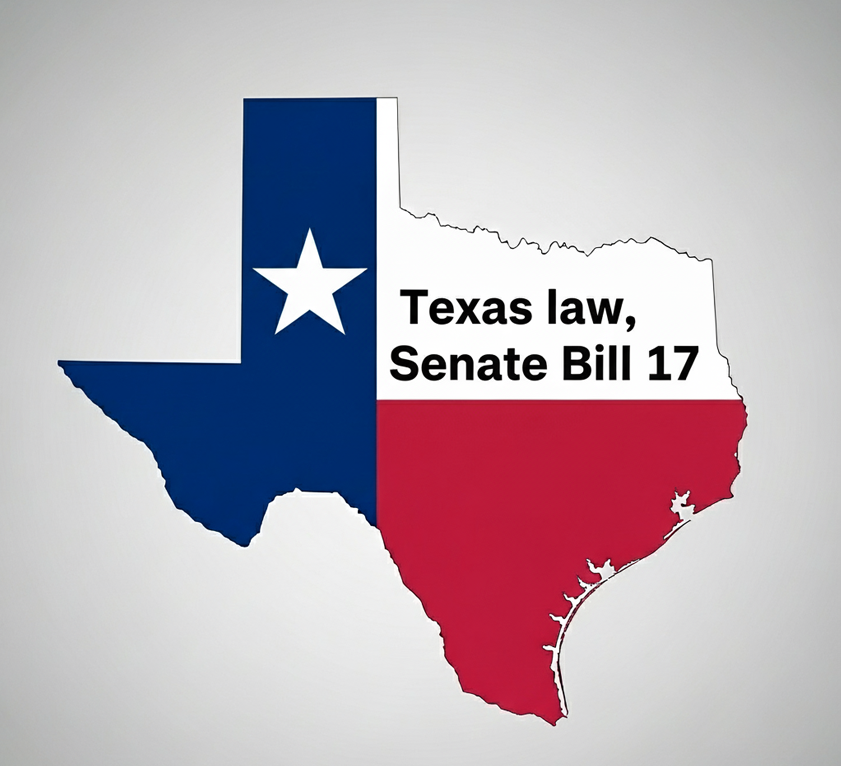Summary
A new Texas law, Senate Bill 17 (SB 17), effective September 1, 2025, has significant implications for investors by prohibiting citizens, companies, and governmental entities from China, Russia, Iran, and North Korea from purchasing any real property in the state. This sweeping legislation, which extends beyond just farmland to include commercial, industrial, and residential real estate, is framed by supporters as a crucial measure to protect national security and critical infrastructure. For investors, this law introduces a new layer of regulatory risk, potentially chilling foreign direct investment from the targeted nations and creating uncertainty in the Texas real estate market, a leading destination for foreign capital. The move could impact joint ventures, private investment funds, and M&A transactions involving entities with ties to the designated countries.
The Core News (What Happened?)
On June 20, 2025, Texas Governor Greg Abbott signed into law Senate Bill 17, which took effect on September 1, 2025. The law explicitly bans the purchase or acquisition of “real property”, including agricultural land, commercial and residential properties, and mineral and water rights, by individuals and entities associated with China, Russia, Iran, and North Korea. The bill grants the governor authority to add other nations to this list. The prohibitions apply to governmental entities, companies headquartered in or controlled by these nations, and individuals domiciled in them. Violations can lead to severe penalties, including a state jail felony for individuals and civil penalties for entities up to $250,000 or 50% of the property’s market value, along with forced divestiture of the property.
Context & Expectations
Leading up to the passage of SB 17, there was growing concern among state lawmakers regarding national security, particularly fueled by a high-profile purchase of 140,000 acres of land in Val Verde County, near Laughlin Air Force Base, by a Chinese businessman with ties to the Chinese Communist Party. This event crystallized fears that foreign adversaries could gain control of land near sensitive military installations or critical infrastructure, potentially compromising U.S. security. Governor Abbott and the bill’s author, State Senator Lois Kolkhorst, positioned the legislation as the “toughest ban in America” necessary to safeguard the state’s land, food sources, and other strategic assets from hostile foreign influence.
Potential Implications (The Bull vs. Bear Case)

Bull Case: Proponents, including Governor Greg Abbott, argue that the law is a critical national security measure. They contend it prevents hostile foreign governments from acquiring strategic assets, protecting military bases, critical infrastructure, and the state’s food and water supply. In a press statement, Governor Abbott asserted, “Hostile foreign adversaries like China, Russia, Iran, and North Korea…should not be allowed access to our critical infrastructure.” The view is that this protective measure strengthens Texas’s long-term economic and physical security, making it a safer environment for domestic investment.

Bear Case: Conversely, opponents and business leaders express concern that the law will have a chilling effect on the Texas economy, which has historically benefited from significant foreign direct investment. Sam Chang, a commercial real estate executive with Henry S. Miller, noted, “It’s just going to stop a lot of that initial discussion about investing in Texas.” Civil rights groups, such as the Chinese American Legal Defense Alliance (CALDA) and the ACLU of Texas, have challenged the law’s constitutionality, arguing it is discriminatory, promotes racial profiling, and violates equal protection rights. These groups warn that the broad language of the bill could discourage legitimate real estate transactions with anyone of Asian descent for fear of legal repercussions, thereby harming innocent individuals and businesses. CALDA filed a lawsuit in July 2025 seeking to block the law, though it was initially dismissed.
Key Data & Metrics
- Foreign-Owned Land in Texas: As of year-end 2021, Texas led the nation with 5.3 million acres of foreign-owned agricultural land, according to the U.S. Department of Agriculture (USDA).
- Chinese Investment in Texas: Between 2011 and 2021, 34 Chinese companies recorded 38 investment projects in Texas, resulting in $2.7 billion in capital investment and the creation of 4,682 jobs, per a 2022 report by the Texas Economic Development & Tourism office.
- Affected Population: As of 2023, at least 120,000 people who were born in mainland China were living in Texas.
- Penalties for Violation: Individuals who knowingly violate SB 17 face a state jail felony, which can carry up to two years in jail and up to $10,000 in fines. Companies face civil penalties of up to $250,000 or half the property’s value.
- National Context: Approximately 28 states have laws that in some way forbid or limit foreign ownership of agricultural land.
The law is not retroactive. A citizen of China, Russia, Iran, or North Korea who owned Texas farmland before the law’s effective date of September 1, 2025, is legally entitled to keep it. Furthermore, the law specifically targets individuals based on their citizenship and domicile, not their ethnic background or “descent.”
On Citizenship vs. “Descent”
This is a critical distinction that was a central point of debate and legal challenges. The law is written to target specific relationships to foreign adversary governments, not people of a certain ethnic background.
- Exemptions for U.S. Citizens & Residents: The law explicitly does not apply to U.S. citizens or lawful permanent residents (i.e., green card holders). This means a U.S. citizen of Chinese, Russian, or any other descent can freely buy, sell, and own property in Texas without any restriction from this law. Dual citizens who hold U.S. citizenship are also exempt.
- Who Is Restricted: The ban is aimed at individuals who are citizens of or domiciled in one of the four designated countries (China, Russia, Iran, North Korea) and do not have U.S. citizenship or permanent residency.
- A Narrow Exception: The law does contain one very narrow exception for non-residents. A citizen of a designated country who is lawfully present and residing in the U.S. (for example, on a work or student visa) is permitted to purchase one single residential property to be used as their primary home (a homestead). They would, however, be barred from buying farmland, investment properties, or multiple homes.
Disclaimer: This article is for informational purposes only and does not constitute financial, investment, or legal advice. The information provided is a synthesis of publicly available data and expert analysis and should not be considered a recommendation to buy or sell any security. Investing in the stock market involves risk, including the possible loss of principal. Past performance is not indicative of future results. Readers should consult with a qualified financial advisor to determine an investment strategy that is suitable for their own personal financial situation and risk tolerance.






















